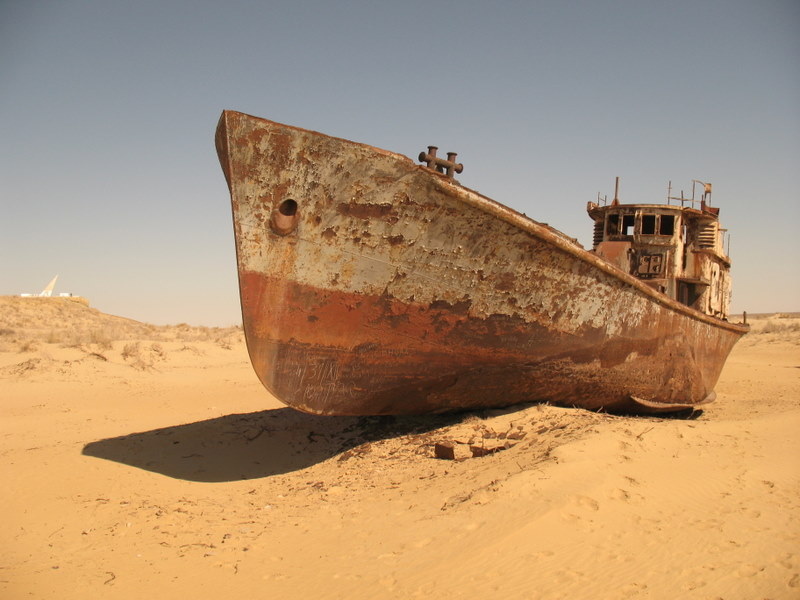Intelligent engineering and planning brings (some) life back to the Aral Sea

The Aral Sea is one of the worst human-authored environmental disasters in history. It used to be the world's fourth-largest freshwater lake, until the Soviet Union in the 1960s diverted its two main river-sources for cotton production. In three decades the sea shrank to barely 10% of its former size, splitting into two much-smaller bodies, the North and South Aral seas.
That's terrible on its own, but the shrinking water produced a huge spike in salinity -- which killed off nearly all the fish. The Aral Sea used to support a thriving fishing industry, but that evaporated with the water, destroying the lives of untold people in the USSR. (And stranding ships, as in the photo above.)
In recent years, though, the story became more positive -- as intelligent engineering and planning has helped to mend things somewhat. As National Geographic reports ...
But Kazakhstan's North Aral Sea has seen a happier outcome, thanks to a nearly $86 million project financed in large part by the World Bank. Along with repairs to existing dikes around the basin to prevent spillage, an eight-mile dam was constructed just south of the Syr Darya River. Completed in the summer of 2005, this dam, named Kokaral, surpassed all expectations. It led to an 11-foot increase in water levels after just seven months-a goal that scientists initially expected would take three years.This turnaround in the North Aral Sea's fate has meant that the fish stocks have returned to its waters, injecting new life into the local communities. Just as government policies had doomed the Aral Sea, careful planning and research helped revive at least part of it.
Kristopher White, a researcher and professor of Almaty's KIMEP University who has studied the economic impacts of the Aral Sea's desiccation, explained that while the sea will never return to its former size, the 18 percent increase in mass of the North Aral Sea is a testament to how political will and scientific research can benefit the environment.
"Anthropogenic ecological damage can be reversed by human intervention," said White.
Given the manifold ecological messes we've created, I'll take any good news I can get about amelioration!
(CC-licensed photo via Martijn Munneke)